At TopVelocity, we understand the crucial role of Optimizing Nutrition to help enhance recovery and performance for athletes. As experts in the field, we have developed comprehensive strategies that can significantly impact an athlete's overall well-being, enabling them to achieve peak performance. In this article, we will delve into the key factors of nutrition optimization, highlighting the importance of proper fueling, hydration, and nutrient timing.
Optimizing Nutrition for Success
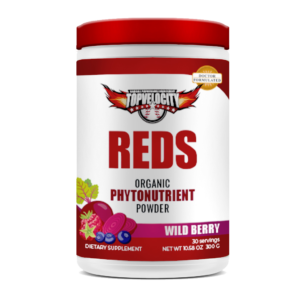 To maximize performance, athletes need to fuel their bodies with the right combination of macronutrients and micronutrients. Here are some essential considerations:
To maximize performance, athletes need to fuel their bodies with the right combination of macronutrients and micronutrients. Here are some essential considerations:
1. Balancing Macronutrients
A balanced diet should consist of an adequate proportion of carbohydrates, proteins, and healthy fats. Carbohydrates serve as the primary energy source, providing fuel for intense physical activity. Incorporating whole grains, fruits, and vegetables into your meals can ensure a steady release of energy throughout the day.
Proteins are crucial for muscle repair and growth. Including lean sources of protein, such as poultry, fish, and legumes, can help optimize recovery after intense workouts. Healthy fats, found in foods like avocados, nuts, and olive oil, support brain function and aid in the absorption of fat-soluble vitamins.
 2. Micronutrient Density
2. Micronutrient Density
While macronutrients are essential, it's equally important to focus on consuming a variety of micronutrients. These include vitamins, minerals, and antioxidants, which play a vital role in maintaining overall health and supporting the body's recovery processes.
Incorporating nutrient-dense foods such as leafy greens, colorful fruits, and vegetables into your diet can provide a wide range of micronutrients. Additionally, considering supplementation under the guidance of a qualified professional can help address any potential nutrient deficiencies.
Hydration for Optimizing Nutrition
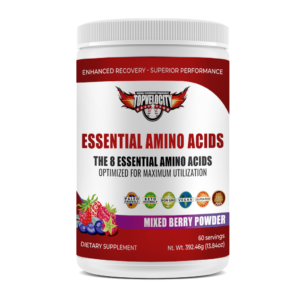 Proper hydration is paramount for athletic success. Even mild dehydration can significantly impair performance and hinder recovery. Here's what you need to know:
Proper hydration is paramount for athletic success. Even mild dehydration can significantly impair performance and hinder recovery. Here's what you need to know:
1. Water Intake
Maintaining adequate hydration levels requires a strategic approach. While individual water needs may vary based on factors such as body composition and exercise intensity, a general guideline is to aim for at least 8 cups (64 ounces) of water per day. However, athletes engaging in intense training sessions should consume more to compensate for fluid loss through sweat.
2. Electrolyte Balance
Sweating during exercise leads to the loss of essential electrolytes, such as sodium, potassium, and magnesium. These electrolytes are crucial for maintaining fluid balance, nerve function, and muscle contractions. Consuming electrolyte-rich foods and beverages, or using sports drinks formulated for athletes, can help replenish these vital minerals.
Optimizing Nutrition with Nutrient Timing: The Key to Recovery
 Optimizing nutrient timing ensures that your body receives the necessary nutrients when it needs them most. Here are some strategies to consider:
Optimizing nutrient timing ensures that your body receives the necessary nutrients when it needs them most. Here are some strategies to consider:
1. Pre-Workout Nutrition
Consuming a balanced meal or snack containing carbohydrates and proteins before exercise can provide the necessary fuel to optimize performance. Aim to eat approximately 1-2 hours before your workout to allow for proper digestion.
2. Post-Workout Nutrition
The post-workout period is crucial for recovery and muscle repair. Consuming a combination of carbohydrates and proteins within 30 minutes to an hour after exercise can promote glycogen replenishment and muscle protein synthesis. Options such as a protein shake, Greek yogurt with fruits, or a chicken and vegetable stir-fry can provide the nutrients needed for optimal recovery.
3. Meal Planning
Strategic meal planning can help athletes meet their nutritional goals. Working with TopVelocity can assist in creating personalized meal plans that consider an athlete's specific needs and preferences. These meal plans can ensure the right balance of macronutrients and provide a consistent supply of energy throughout the day.
The Role of Supplements when Optimizing Nutrition
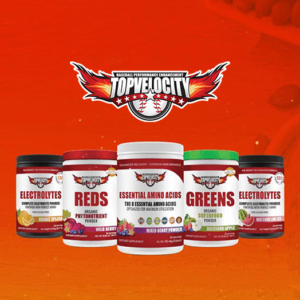 While a well-rounded diet should be the foundation of an athlete's nutrition, certain supplements can be beneficial in supporting performance and recovery. However, it's important to approach supplementation with caution and consult with a healthcare professional or sports dietitian. Here are some common supplements worth considering:
While a well-rounded diet should be the foundation of an athlete's nutrition, certain supplements can be beneficial in supporting performance and recovery. However, it's important to approach supplementation with caution and consult with a healthcare professional or sports dietitian. Here are some common supplements worth considering:
1. Protein Supplements
Protein supplements, such as whey protein or plant-based protein powders, can be convenient options to meet increased protein needs for athletes. They can be consumed as part of a post-workout shake or added to meals and snacks to enhance protein intake.
2. Omega-3 Fatty Acids
Omega-3 fatty acids have been shown to have anti-inflammatory properties and support cardiovascular health. Fish oil supplements or incorporating fatty fish like salmon into your diet can help ensure an adequate intake of these beneficial fats.
3. Vitamin D
Vitamin D plays a crucial role in bone health, immune function, and muscle function. Athletes who have limited sun exposure or inadequate dietary intake may benefit from vitamin D supplementation to maintain optimal levels.
The Importance of Sleep
 While nutrition is essential, it's important not to overlook the significance of quality sleep in optimizing recovery and performance. During sleep, the body undergoes various restorative processes, including muscle repair and hormone regulation. Here are some tips for improving sleep quality:
While nutrition is essential, it's important not to overlook the significance of quality sleep in optimizing recovery and performance. During sleep, the body undergoes various restorative processes, including muscle repair and hormone regulation. Here are some tips for improving sleep quality:
1. Establish a Consistent Sleep Schedule
Maintaining a regular sleep schedule, going to bed and waking up at the same time each day, can help regulate your body's internal clock and promote better sleep quality.
2. Create a Sleep-Friendly Environment
Ensure your sleep environment is dark, quiet, and at a comfortable temperature. Consider using blackout curtains, earplugs, or white noise machines to minimize disruptions that may affect sleep.
3. Limit Screen Time Before Bed
The blue light emitted by electronic devices can interfere with your sleep-wake cycle. Aim to avoid screens at least one hour before bed or use blue light filters or glasses to mitigate the impact.
Conclusion
Optimizing nutrition is a critical component of enhancing recovery and performance for athletes. By focusing on proper fueling, hydration, nutrient timing, and sleep, athletes can provide their bodies with the necessary tools to excel in their respective sports. Remember, it's essential to individualize nutrition strategies based on personal needs and consult with professionals when necessary. At [Our Company], we are dedicated to helping athletes reach their full potential by providing tailored nutrition plans and expert guidance. Together, we can unlock your performance potential and achieve greatness.
Optimizing Nutrition Diagram
TopVelocity Nutritional Program for Optimizing Nutrition
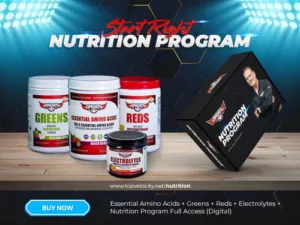 Ready to take your performance to the next level? Get started with the TopVelocity Nutritional Program today and fuel your success!
Ready to take your performance to the next level? Get started with the TopVelocity Nutritional Program today and fuel your success!
Our program is designed to optimize your nutrition, enhance recovery, and boost performance. Whether you're a professional athlete, a dedicated amateur, or simply someone passionate about reaching your athletic goals, our team of experts is here to support you every step of the way.
Experience the benefits of a personalized nutrition plan tailored to your specific needs and sport. Gain access to valuable resources, meal plans, and guidance from certified sports nutritionists who understand the unique demands of your training.
Don't let your nutrition hold you back from achieving your full potential. Join the TopVelocity Nutritional Program and unlock the power of optimal fueling for superior performance.
Visit our website www.topvelocity.net/nutrition to learn more and sign up today. Fuel your body, elevate your game, and dominate the competition with TopVelocity!


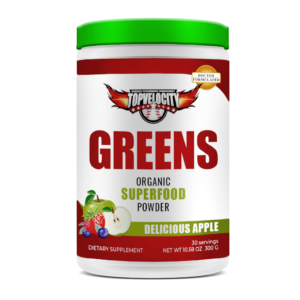 2. Micronutrient Density
2. Micronutrient Density

